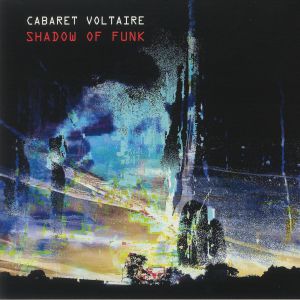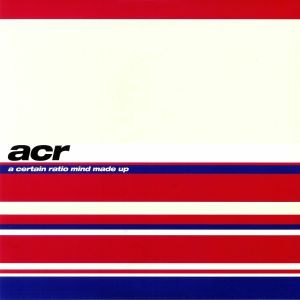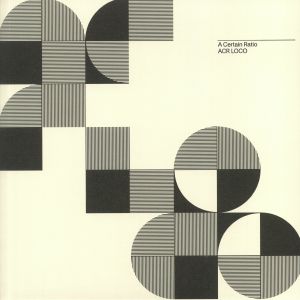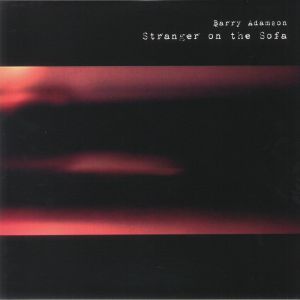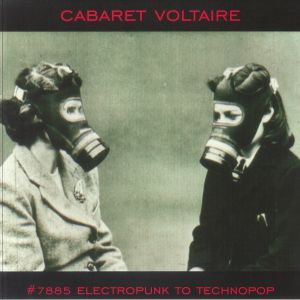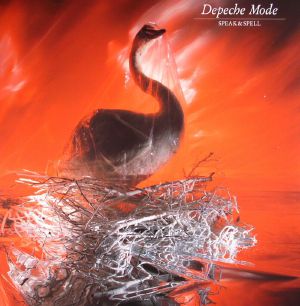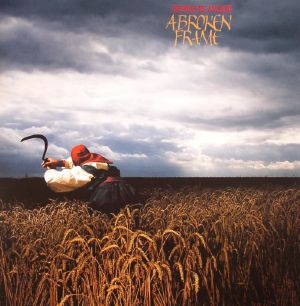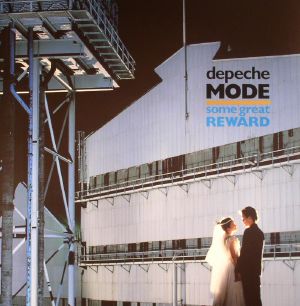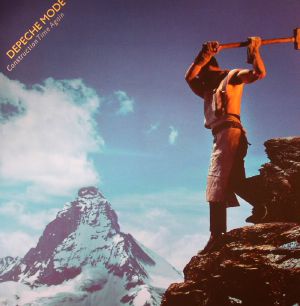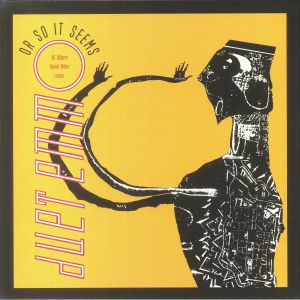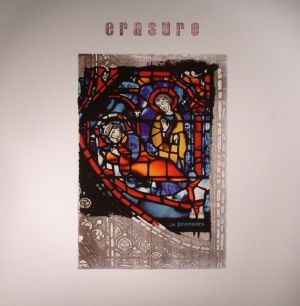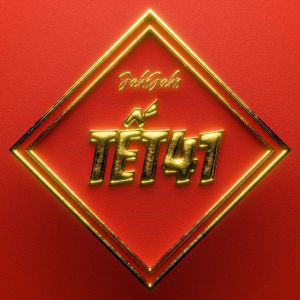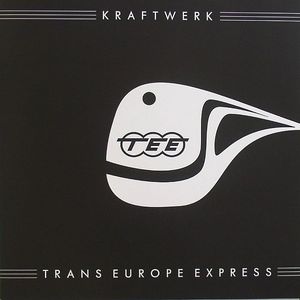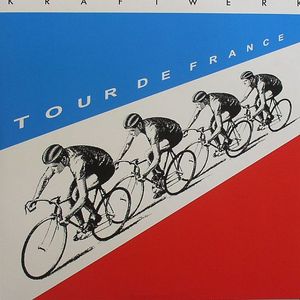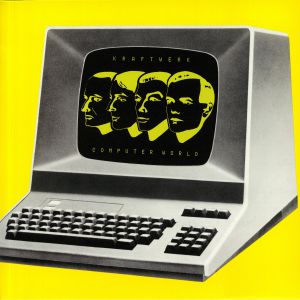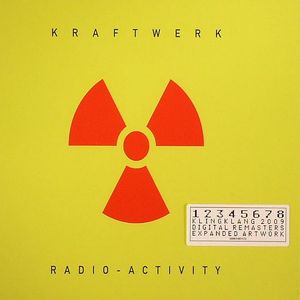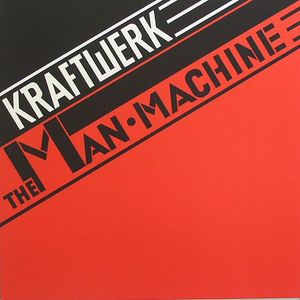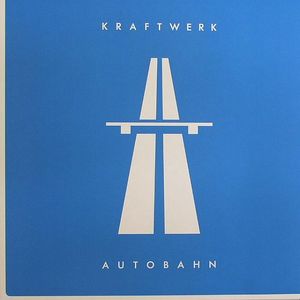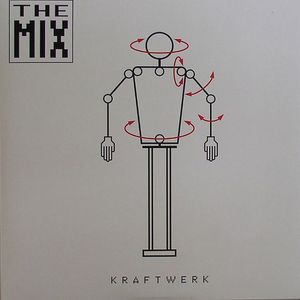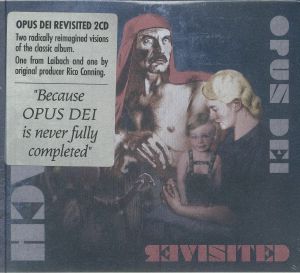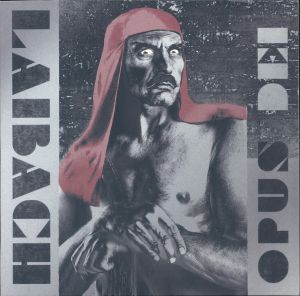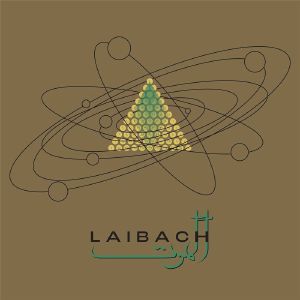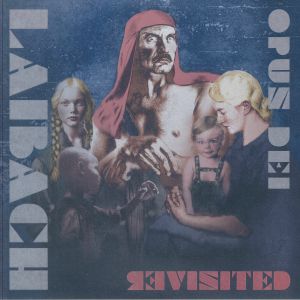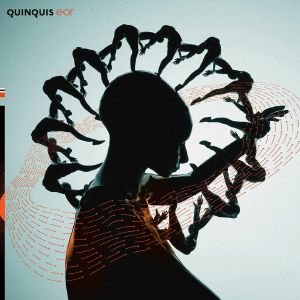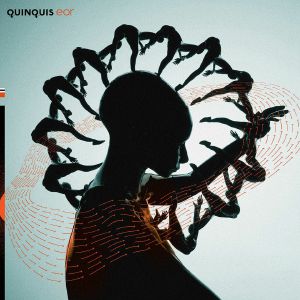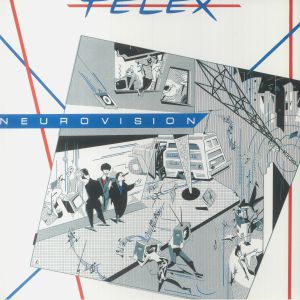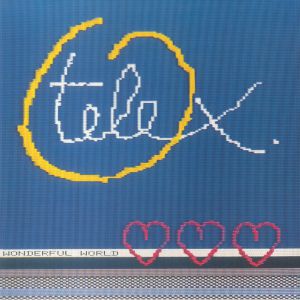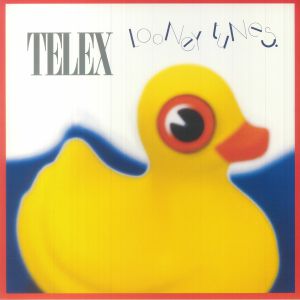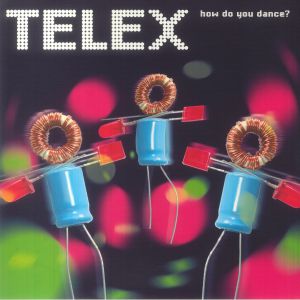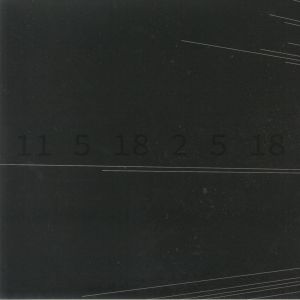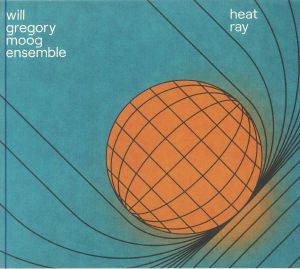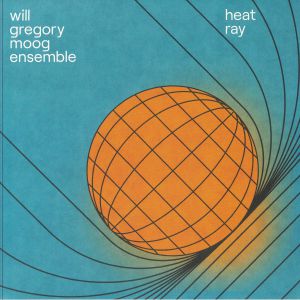Back catalogue: Coldwave/Synth
Juno's full catalogue of Coldwave/Synth
单曲
Shadow Of Funk (limited transparent blue vinyl 12" + MP3 download code)
Cat: 12MUTE 622. Rel: 26 Feb 21
Review: When Cabaret Voltaire returned to the release schedule in 2020 as the one-man Richard H Kirk show, fans were relieved to find that mind-bending meld of 1970s Kosmische, techno, dub, house and space-age experimental electro was as pure as it ever has been - the results being a typically fresh and forward-thinking record the man in question summed up as "no nostalgia... normal rules do not apply. Something for the 21st Century. No old material."
Less than six months later and the big CV has more next level business to offer us, coming in the form of Shadow of Funk, a new EP that offers something of a counterpoint or extension to last year's full-length, Shadow of Fear. Based on 'Billion Dollar' alone - an acid-driven big, dark room banger that closes this EP -this release looks set to make an equally heavy impact, but as with anything this man touches, the joy is in discovery. So, let's leave it at that.
… Read moreLess than six months later and the big CV has more next level business to offer us, coming in the form of Shadow of Funk, a new EP that offers something of a counterpoint or extension to last year's full-length, Shadow of Fear. Based on 'Billion Dollar' alone - an acid-driven big, dark room banger that closes this EP -this release looks set to make an equally heavy impact, but as with anything this man touches, the joy is in discovery. So, let's leave it at that.
Played by: Juno Recommends Leftfield
in stock $24.23
专辑
Mind Made Up (reissue) (purple vinyl 2xLP + MP3 download code)
Cat: STUMM 413. Rel: 27 Jul 18
in stock $28.73
ACR Loco (limited coloured vinyl LP + booklet + MP3 download code)
Cat: STUMM 454. Rel: 25 Sep 20
Review: A Certain Ratio's core trio of drummer Donald Johnson, bassist/vocalist Jez Kerr, and multi-instrumentalist Martin Moscrop make ACR Loco a perfectly fluid and funk album. In fact, on this, their first album in more than ten years, the Manchester post-punk outfit are as funky as they have ever been. Their tried and tested sound gets nicely updated with modern beat driven sounds and plenty of redefines to today's political strife in the lyrics. There are plenty of smooth and cool synth led grooves like 'Get A Grip' and messages of unity on 'Family' that we can all relate to.
… Read morePlayed by: DJ ROCCA
in stock $25.07
Change The Station (reissue) (limited blue vinyl 2xLP)
Cat: STUMM 412. Rel: 27 Jul 18
in stock $21.39
Stranger On The Sofa (reissue) (limited translucent red vinyl 2xLP + MP3 download code)
Cat: BARRY 1. Rel: 22 Sep 22
in stock $21.13
Review: London's legendary Mute institution goes back to its roots and digs up some of the best work by one of the UK's finest Cabaret Voltaire. These guys don't really need an introduction give the fact that they're pretty much responsible for the rise of post-punk right through to the birth of techno. It was about time a new compilation of their stuff was released, especially one as brutally on-point as this one! All the classics such as "Nag Nag Nag", "Kneel To The Boss" and "On Every Other Street" are one here but the more obscure rarities that were previously only available on 7" are the real winners. "Just Fascination", for example, is one you'll certainly want on a longer, re-mastered cut! Downright essential!
… Read morePlayed by: Juno Recommends Experimental, Snuffo
in stock $22.26
in stock $25.35
in stock $25.91
in stock $27.33
in stock $26.47
Or So It Seems (remastered) (limited gatefold white vinyl LP + 1-sided LP + MP3 download code)
Cat: LSTUMM 11. Rel: 18 Aug 22
Review: Graham Lewis, Bruce Gibert, Mute label founder and all round legend Daniel Miller came together to make this Duet Emmo record way, way back in 1981. Finishing the work a year later, it would be another 12 months before fans and unexpected listeners could access their accomplishment: a landmark experimental electronic release that also set benchmarks for minimal wave.
Perhaps what's so remarkable is the way in which Or So It Seems doesn't just play with, but offers an aural essay on timbre and resonance, depth and texture. There's not a huge amount happening on any of the nine tracks, but nevertheless they suck you in so far you'll find it difficult to remember which way to swim to resurface. Up or down, sideways or diagonal, whatever route it all winds up with the delightfully weird-but-fun 'Heart of Hearts'.
… Read morePerhaps what's so remarkable is the way in which Or So It Seems doesn't just play with, but offers an aural essay on timbre and resonance, depth and texture. There's not a huge amount happening on any of the nine tracks, but nevertheless they suck you in so far you'll find it difficult to remember which way to swim to resurface. Up or down, sideways or diagonal, whatever route it all winds up with the delightfully weird-but-fun 'Heart of Hearts'.
Played by: Juno Recommends Experimental
in stock $33.52
The Innocents: 30th Anniversary Edition (limited heavyweight vinyl LP)
Cat: STUMM 55. Rel: 05 Feb 16
in stock $25.64
Review: Berlin-based producer JakoJako aka Sibel Kocer's debut album for Mute - after appearances on a stream of leading German labels including Tresor - is described as a distillation of ideas that she's been exploring for many years. In reality, that means working on a minimal set up, away from the computer while restricting herself to just a Eurorack and a Waldorf Iridium Core, in the search for spontaneity. She found it, for sure, as the results - recorded in Vietnam during the Tet Lunar New Year celebrations - are a feast of glistening arpeggios and lush modular textures, stripped back but full of expression and personality. 'Ghi-ta' will appeal to fans of vintage perky ambient productions the Pete Namlook/Mixmaster Morris collaboration Dreamfish, while 'Gio' has a touch of Tangerine Dream's classic widescreen sensibilities. Bold tones, bold debut.
… Read more in stock $27.03
Played by: Rising Sun, Samo DJ
in stock $38.59
Played by: Kone-R (Uncharted Audio), Juno Classics
in stock $49.47
Played by: AJELLO, Andy Ticker, Rolando, Mick Welch (Elektrosouls), Dmitry Distant, Juno Classics, ImiAFan
in stock $27.33
in stock $13.51
Played by: Ste Roberts
in stock $36.90
Played by: Juno Classics
in stock $27.33
Transnational (Revisited)
How The West Was Won (Revisited)
The Great Seal (Revisited)
Opus Dei (Revisited)
Opus Dei (remix)
Transnational (remix)
How The West Was Won (remix)
The Great Seal (remix)
Review: Laibach revisits two iconic tracks from their 1987 opus, bringing new intensity to 'Leben heiBt Leben' and 'Geburt einer Nation.' Originally reworked for live performances, these versions merge theatrical drama with sharper sonic edges. The second disc ventures further, with original producer Rico Conning layering remixes that strip back and reimagine the band's audacious sound. This project doesn't just reframe the past; it grapples with it, offering both a homage and a provocative challenge to how we hear Laibach today.
… Read more in stock $10.42
Review: Mute Records presents a newly reissued and remastered edition of Laibach's classic 1987 album, Opus Dei. This time coming to a black vinyl and CD box set, the album is renowned for its bringing Laibach to a wide audience; without the album's early successes, this pioneering industrial, neo-classical rock outfit might've never broken from their native Slovenia. With their unique interpretations of Opus' 'Live is Life' and Queen's 'One Vision' and produced by Rico Conning, the album still bears the torch of one of Mute's most eclectic yet captivating albums.
… Read more in stock $25.35
Review: Laibach and A/political present Alamut, a new, symphonic album inspired by Vladimir Bartol's 1938 novel of the same name. Recounting an 11th-century Persian tale - centered on the charismatic and enigmatic Hassan-i Sabbah, leader of the Nizari Ismailis and founder of the Order of Assassins - this is a shadowy, ninja-black-wax initiation into an esoteric order of spies. Laibach's work blends classical Persian poetry, minimalist orchestral textures, and industrial elements, reflecting both historical propaganda tactics and Bartol's critique of rising Fascism in 1930s Italy. Released on double vinyl and CD box set through Mute, the album was recorded in 2022 at a former Crusader castle in Ljubljana; it features the RTV Slovenia Symphony Orchestra, Tehran's Human-Voice Ensemble, the Gallina Women's Choir, and the women's accordion orchestra AccordiOna, conducted by Navid Goharib.
… Read more in stock $32.40
Review: Laibach has announced the release of Opus Dei Revisited, a newly reworked version of their seminal 1987 album. This project features two distinct versions of the original work. The first disc showcases a complete reimagining of the tracks, developed during the band's ongoing Opus Dei Revisited tour. The second disc includes fresh remixes by Rico Conning, who produced the original album, allowing him to reinterpret the source material while preserving key elements. Opus Dei was Laibach's first release with Mute Records, propelling them into international recognition and spotlighting their unique sound. The album includes Leben heiBt Leben, a German-language adaptation of Opus' Live is Life, which will again be featured on this release. Formed in 1980 in the industrial town of Trbovlje, Slovenia, Laibach's provocative performances and imagery have earned them a reputation as one of Eastern Europe's most influential collectives. Opus Dei Revisited promises to challenge perceptions and expectations, echoing the band's relentless pursuit of artistic innovation.
… Read more in stock $28.73
in stock $34.92
Review: Known for their cover versions - having re-read Sly Stone, Plastic Bertrand, Les Chats Sauvages, and many more over the years - Telex managed to tread a fine line between comedy and innovation. Focusing heavily on a lo-fi synthesised sound, the Belgian alt-poppers would use plenty of humour in their work, but never allowed this to outshine or overshadow the musicality of it all. Released in 1980, Neurovision is a case in point. According to the band, this was their tongue-in-cheek entry to the Eurovision Song Contest, for which they were chosen as representatives for their home country in the same year. Deliberately banal lyrics, mostly referring to the competition itself, married to the glittering wonder of a proto-electronic soundtrack, mark it as a work of bold daring and a little genius. Sadly, it failed to secure them last place in the tournament, as they hoped, forcing them to settle for 17 out of 19.
… Read morePlayed by: Marco Febbraro
in stock $16.06
Played by: DJ ROCCA
in stock $16.06
Review: In some ways it's remarkable that Telex managed to achieve the level of global success they did. This isn't slight on the band or indeed their sound, but to simultaneously make groundbreaking noises and garner widespread mass appeal has never been that easy, save for a number of high profile names we often now consider doyens of the music world. Looney Tunes, the group's fifth album, arrived in 1988 and by this point they had already been inducted into the synth pop hall of fame. Output and activity slowing considerably as the decade progressed, just like their sixth and final outing How Do You Dance?, released in 2006, here was proof that their vitality and ability to make ground breaking things had not waned, while their understanding of hooks and immediate impact had only grown more polished and absolute.
.
… Read more.
in stock $16.06
Review: Formed in 1978, Marc Moullin, Dan Lacksman, and Michael Moers broke the mould with Telex - one of the most influential Belgian synth-pop groups of all time. Calling on disco, punk, and the sound of formative era experimental electronic music that was beginning to take hold in Western Europe, they would simultaneously produce some of the most important tracks of the genre until their first disbandment in 2006, and bless us with hilarious pithiness in the shape of tunes like 'Euro-Vision', a bleep-driven 'critique' of the song contest. How Do You Dance? was the group's final studio album, rounding out a six-strong, decade-spanning LP back catalogue, and despite arriving almost three decades after their debut, Looking for Saint Tropez, turned heads for its originality, this beauty still proved they were more than capable of delivering innovative goods. One for fans of Metronomy, Todd Terje and more.
… Read more in stock $16.06
11 5 18 2 5 18 (gatefold clear vinyl 2xLP (side 4 etched) in spot-varnished sleeve)
Cat: STUMM 478. Rel: 28 Oct 22
in stock $21.13
Review: The Will Gregory Moog Ensemble's debut album, Heat Ray, is a riveting exploration inspired by the ancient Greek mathematician Archimedes. Recorded on analogue synthesizers alongside the BBC National Orchestra of Wales, the ensemble - led by Goldfrapp co-creator Will Gregory - brings together up to 14 talented players, including Portishead's Adrian Utley and Mute's Daniel Miller. Heat Ray fuses spirals of melody, circular structures, and intricate patterns, drawing inspiration from Archimedes' mathematical principles. The album's genesis during pandemic lockdowns reflects Gregory's deep dive into Archimedes' life, sparked by online lectures. With a lineup boasting instruments like the Minimoog and Prophet 6, the ensemble weaves a stunning superstructure of sounds, guided by Gregory's effervescent spirit of discovery. The result is a splendid blend of ancient history and modern innovation, where musical exploration converges with mathematical curiosity. Heat Ray not only pays homage to Archimedes' legacy but also propels listeners towards an endlessly fascinating future.
… Read morePlayed by: Juno Recommends Experimental
in stock $12.11
Review: The Will Gregory Moog Ensemble's debut album, Heat Ray, is a riveting exploration inspired by the ancient Greek mathematician Archimedes. Recorded on analogue synthesizers alongside the BBC National Orchestra of Wales, the ensemble - led by Goldfrapp co-creator Will Gregory - brings together up to 14 talented players, including Portishead's Adrian Utley and Mute's Daniel Miller. Heat Ray fuses spirals of melody, circular structures, and intricate patterns, drawing inspiration from Archimedes' mathematical principles. The album's genesis during pandemic lockdowns reflects Gregory's deep dive into Archimedes' life, sparked by online lectures. With a lineup boasting instruments like the Minimoog and Prophet 6, the ensemble weaves a stunning superstructure of sounds, guided by Gregory's effervescent spirit of discovery. The result is a splendid blend of ancient history and modern innovation, where musical exploration converges with mathematical curiosity. Heat Ray not only pays homage to Archimedes' legacy but also propels listeners towards an endlessly fascinating future.
… Read more in stock $25.35
in stock $25.64

 USD
USD





